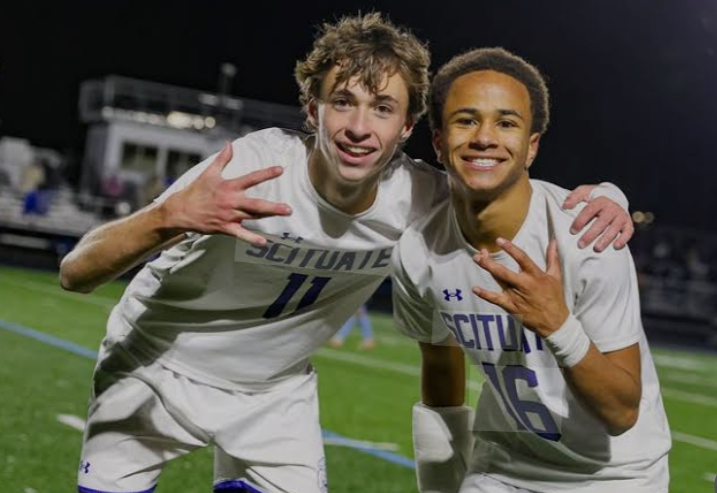Most high school and club soccer players in the USA think their recruitment comes down to three things: game footage, ID camps, and emails. And while those matter, there is a fourth factor that quietly influences recruitment more than players realize:
Your social media.
Every year, college coaches scroll through Instagram, TikTok, and Twitter/X looking for clues about a player’s character, discipline, consistency, and personality. For many coaches, social media has become a verification tool—a way to confirm whether you are the same focused, serious, and reliable student-athlete you claim to be in your emails or highlight videos.
Unfortunately, most players don’t take this seriously. Some post things that hurt their recruitment. Others miss the chance to use social media as a powerful advantage.
In this guide, you’ll learn exactly how coaches evaluate your online presence—and how you can use your platforms to stand out, build trust, and increase your chances of receiving real interest from college soccer programs in the United States.
Why College Coaches Check Your Social Media
College coaches are busy, and their inboxes are overflowing (you can see what it really looks like inside their inbox in this article: what really happens inside a college soccer coach’s inbox).
Because of this, coaches use every tool available to evaluate you quickly. Social media provides instant insight into:
1. Your personality and maturity
Coaches want players who represent their program well. Immature posts, profanity, or inappropriate content can disqualify you instantly—no matter how good you are.
2. Your work ethic
Do you post training clips? Lifting sessions? Recovery routines?
These demonstrate discipline and consistency—two traits coaches value.
3. Your academic attitude
Players who show commitment to school, study habits, or academic achievements appear more trustworthy and more likely to thrive in college.
4. Your lifestyle and habits
Coaches want to avoid players who may bring problems to their locker room.
Posts involving partying, smoking, vaping, alcohol, or questionable behavior send the wrong message immediately.
5. Your interests and values
Leadership roles, community involvement, family dynamics, volunteering, and teamwork show character and help coaches understand the type of person you are.
Simply put:
Coaches recruit people—not just players. Your social media tells them who you are.
The Biggest Social Media Mistakes That Kill Recruitment
Here are the mistakes that coaches consistently mention as red flags.
1. Partying or drinking content
Even if you aren’t doing anything illegal, it signals poor judgment. College coaches avoid risk.
2. Complaining or negativity
Public rants about coaches, teammates, referees, or clubs immediately signal attitude problems.
3. Inappropriate comments
Likes, comments, or reposts matter as much as your posts. Coaches check them.
4. No soccer content at all
If your profile is empty—or all memes—it’s harder for a coach to evaluate who you are.
5. Accounts set to private
A private account is not a dealbreaker, but it slows the process. Some coaches simply skip players they can’t quickly evaluate.
6. Copying “pro player” behavior
Trash-talk content or ego-driven posts may seem cool, but college coaches hate it.
If you’ve made any of these mistakes, don’t panic—just clean up your profile starting today.
How to Build a Coach-Friendly Social Media Profile
Now let’s break down what coaches want to see.
1. Make Your Profile Clean, Simple, and Searchable
Your profile should be easy for a coach to understand at a glance.
Instagram Bio Example:
- Name
- Graduation year (ex. 2026)
- Position (RW / CM / CB)
- Club & high school
- City/State
- Email contact
- Highlight link (if possible)
Example:
Diego Martínez | 2026
RW | FC Prime Academy
Austin, TX
Highlight link below
📩 diego.martinez26@gmail.com
Small details like this make life easier for coaches—and that helps you.
2. Post Regular Soccer Content
You don’t need to become an influencer. You just need to show that soccer matters to you.
Post ideas coaches love:
- Short training clips (ball control, finishing, agility, etc.)
- Game pictures or brief game moments
- Workout and gym sessions
- Recovery routines (stretching, ice bath, mobility)
- Team photos
- Tournament recaps
- Progress updates (“Working on my weak foot this month…”)
Coaches are NOT judging the production quality—they’re judging your consistency.
3. Keep Your Captions Mature and Positive
This is where many players fail.
Your captions don’t need to be motivational quotes. They just need to show professionalism.
Good caption examples:
- “Putting in the work every day.”
- “Focusing on speed and agility this month.”
- “Grateful for the opportunity to compete this weekend.”
- “Growth mindset: improve 1% daily.”
These show maturity without sounding scripted.
4. Remove Content That Hurts You
Go through your posts, likes, and comments.
Delete or untag yourself from anything related to:
- Partying
- Alcohol
- Vaping or smoking
- Fights or aggression
- Offensive humor
- Controversial topics
- Cheating or skipping school
- Complaints about coaches or teammates
If a coach sees it, they’ll assume you bring risk to their program.
5. Use Stories and Reels Strategically
Stories let coaches see your day-to-day habits.
Reels help you showcase soccer clips in a dynamic way.
Good Story/Reel ideas:
- Pre-game routine
- Post-game reflections
- Training progress
- Behind-the-scenes of your season
- Key moments from important games
The goal is NOT to post every day—the goal is to show consistency and dedication.
6. Avoid Posting Too Much “Highlight” Content
Coaches can tell if a player is trying too hard to look perfect.
They prefer authenticity:
- Real work
- Real improvement
- Real challenges
Of course, you still need a proper highlight video. If you don’t have one yet—or you want to avoid the common mistakes—read this guide on why most players get their highlight videos wrong.
7. Engage Professionally With Coaches
If a coach follows you or likes one of your posts, that’s a small sign of interest.
But be careful:
- Don’t spam them
- Don’t DM them casually
- Never ask, “Coach, did you see my highlight video?”
Everything in recruitment must be done professionally—especially emailing coaches. If you need help writing the perfect message, use this guide on how to write the perfect email to college soccer coaches.
8. Use Your Platform to Show Your Character
Coaches care deeply about who you are as a person.
Content that demonstrates character:
- Helping younger players
- Leadership moments
- Tutoring/academics
- Family values
- Community service or volunteering
- Sportsmanship
A coach is recruiting you for four years—not for one season.
Character matters as much as talent.
9. Build a Positive Online Reputation (Your “Digital Footprint”)
Every like, comment, repost, tag, and DM contributes to your digital footprint.
Best practices:
- Follow current professionals, college players, and teams
- Engage with educational or motivational content
- Respond politely to comments
- Avoid arguments or negative interactions
Your online presence should reflect your seriousness as a student-athlete.
10. Don’t Force It—Be Authentic
College coaches can spot fake personalities instantly.
Be genuine, be respectful, be disciplined, and be consistent.
Your personality doesn’t need to be charismatic or loud.
You just need to show the habits of a college-level player.
The Hidden Benefit: Your Social Media Shows Your Growth Over Time
Coaches love players who demonstrate improvement month after month, year after year.
When your social media documents:
- Your physical transformation
- Your training progression
- Your commitment to academics
- Your team experiences
- Your challenges & how you overcame them
…it tells a story that coaches connect with emotionally.
Most players hide their journey.
The smart ones share it.
Final Thoughts
A coach-friendly social media profile is not about being perfect or pretending to be someone you’re not. It’s about presenting yourself the same way you would in person:
- Mature
- Respectful
- Hardworking
- Coachable
- Focused on growth
Your online presence is part of your recruiting package—just like your email, highlight video, or performance at ID camps.
When used correctly, it can separate you from hundreds of players who have similar talent but lack the professionalism to stand out.
Start building your digital identity today. College coaches are watching—even when you think they aren’t.
.svg)










